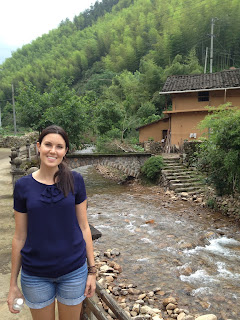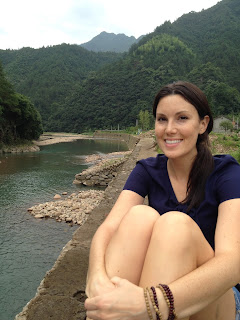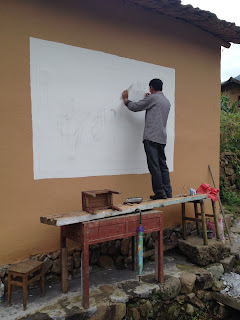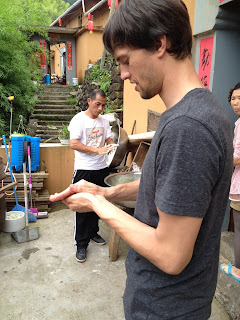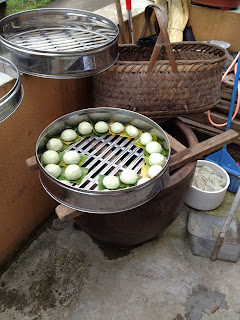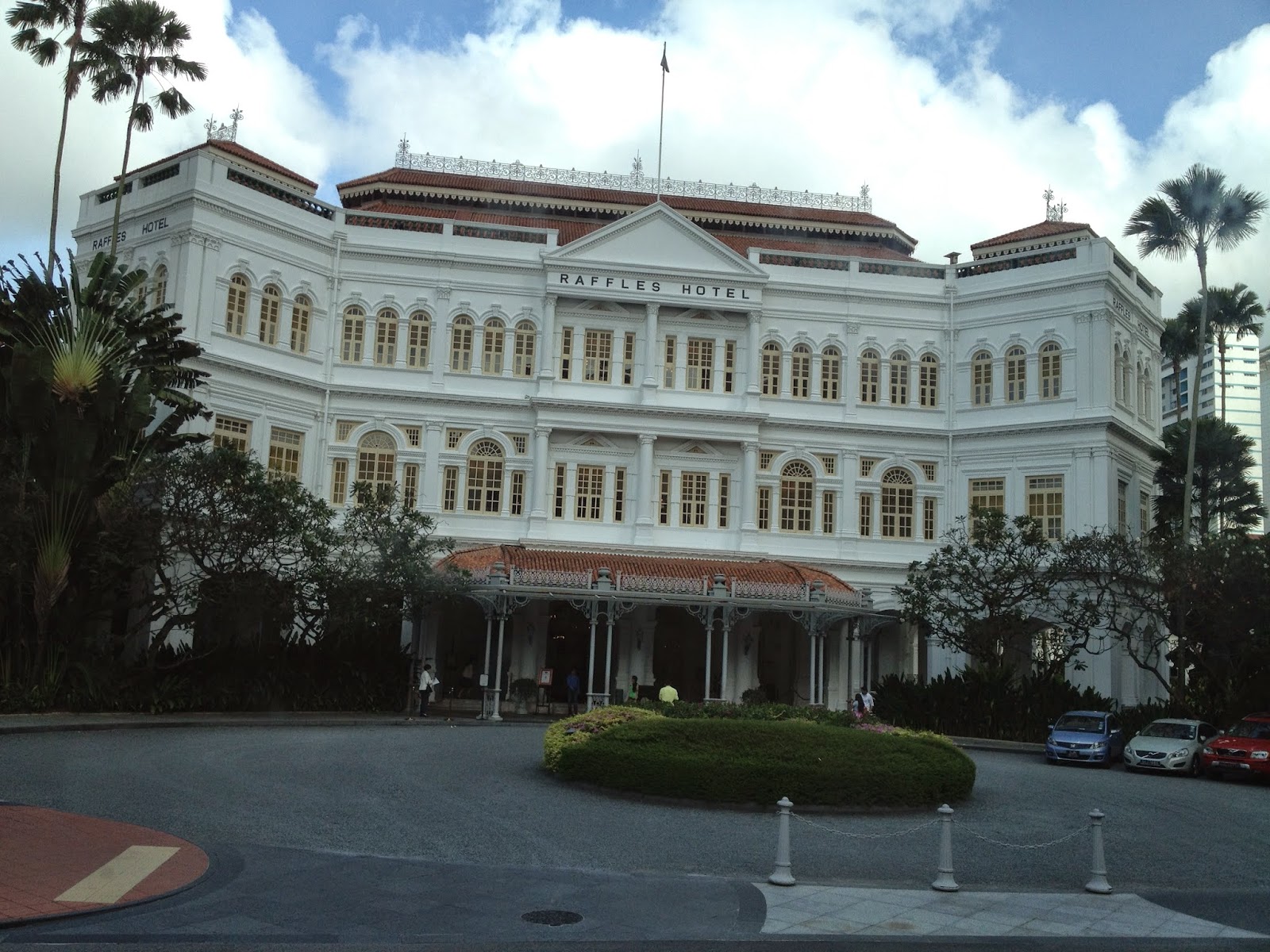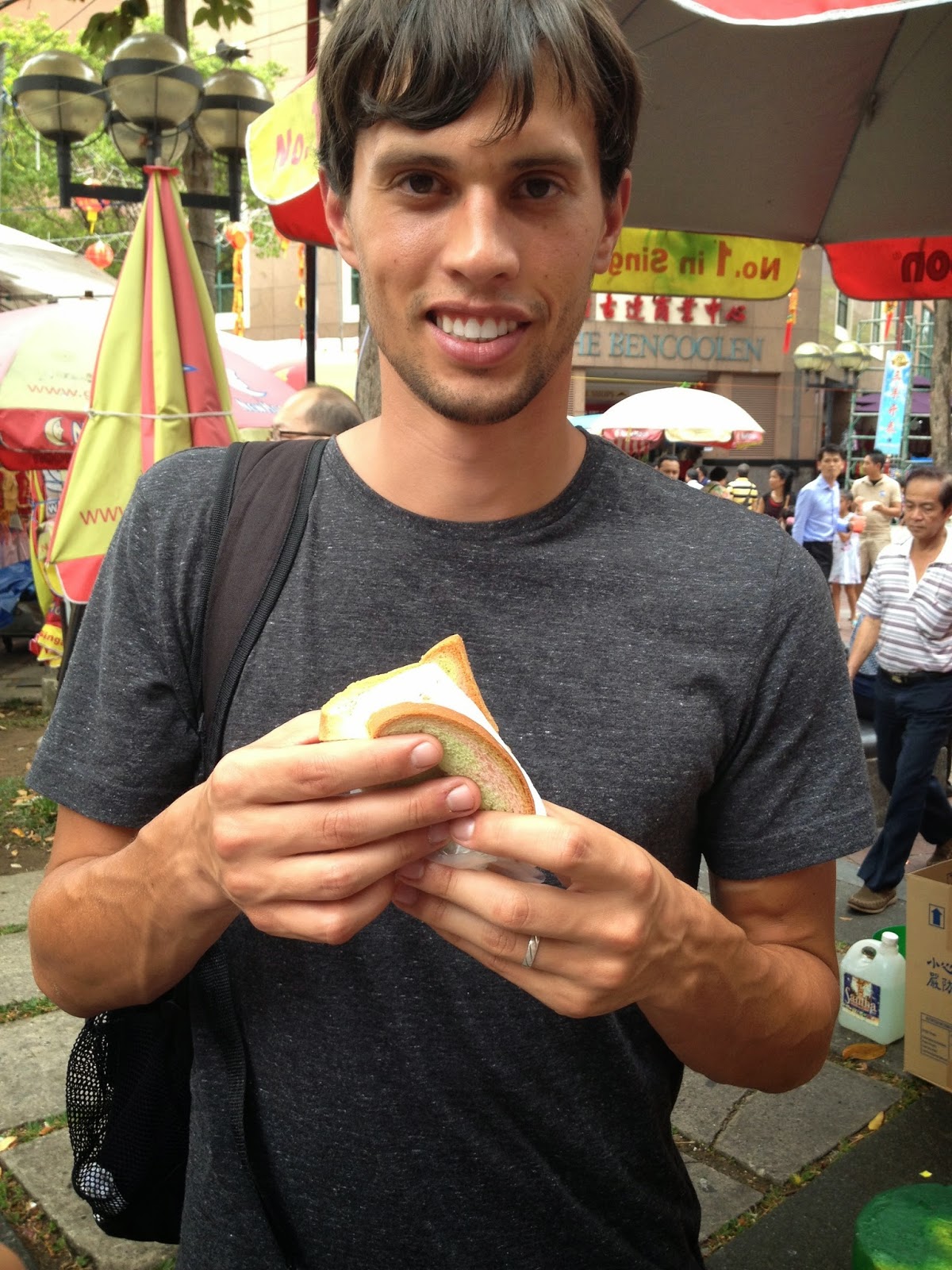Spring
**Note** I actually wrote this post back in June but never got around to uploading pictures and actually posting it. Then we got sidetracked by our trip to Japan and are getting further behind. Now that this post is actually on the blog, we will start working on the Japan posts.
This spring we finally had a few
opportunities to do what we’ve been looking forward to since moving abroad: see
more of rural China. At this point I think we’ve visited more Chinese cities than
American ones and, while they all have a few of their own unique attractions,
they all start to feel about the same after a while. Getting to the more rural areas is always a
challenge though. It’s always some combination of taxi, train, and long
distance bus and usually a full day of travel each way, making it too
impractical for even three day weekends. Also, once you get out of the city, English speakers become fewer and further in between (not they’re particularly
common in the city anyway) and even though my Chinese is getting better, there
is always some misunderstanding along the way. The whole process is actually
very stressful and we’ve gotten to where we just prefer going to Shanghai for
every holiday weekend: it’s a relatively quick and easy trip and we already have
all our favorite spots.
Visiting a water town has been high on the
list for a while though and we finally decided to make it happen. There are
several in the Hangzhou area so the problem isn’t with travel, but crowds.
Everyone says that weekends and holidays get so busy that it’s not even worth
it to go (the idiom Chinese people like is ‘people mountain, people sea’). Even
my students said it would be best to wait until we get a chance in the middle
of the week, which we finally got in May when we were given a few days off
during the final exam testing weeks. We saw that as the perfect opportunity to
go to Wuzhen, one of the more popular water towns in the Hangzhou area. To get
there we had to take a long distance bus from Hangzhou, which took about 2 hours.
We then transferred to a city bus to get to the Wuzhen scenic area where we
were able to check into our hotel and enter the actual park.
The scenic area is basically just a lot of
traditional Chinese buildings connected by a network of sidewalks and canals.
It’s a bit like a miniature Asian Venice. There are lots of cool shops to
visit, snacks to eat, and boats to ride in. We started out by taking a boat
from the entrance of the park all the way down to the other end. There were
lots of good photo opportunities on the way and when we got there, we were able
to walk back the other way and stop at shops. It ended up being an ideal amount
of other visitors as there were just enough to keep the shops open but not so
many that it was crowded. After a few hours of walking around, we made our way
to our hotel room, which was one of many little guesthouses operated by locals.
It was right on the water and offered a cool view right from the bedroom. The
owners made us dinner as well as breakfast the next morning, and after another
few hours of roaming around we checked out and headed back to Hangzhou. It was
a short and simple trip, but one of the more unique things we’ve done since
being in China.
Another cool opportunity which came a few
weeks later was to travel out to a very, very rural farming village called Juyukou,
which one of my colleague’s wife grew up in. I had mentioned to him that we
wanted to see more of rural China and they were kind enough to invite us for
the weekend of the Dragon Boat Festival. Juyukou is about as rural as it gets, and without their hospitality we just wouldn’t have been able to get there on
our own. It’s about an hour and a half by fast train to the nearest city, then
two hours on two separate busses that wind through the mountains before you get
there. They have a car though and were
willing to pick us up at the train station and drive us from there. We drove
all the way to the top of one mountain range and down through the valley on the
other side. There were a lot of spectacular views along the way and it was
amazing how much clearer the air got and how clean the river was as you got out of the city and into the mountains.
After nearly two hours driving through the
mountains we finally arrived in Juyukou. The village is home to about 200 residents, but most of the 20/30/40 year olds have moved into the
city where there are opportunities for work outside of farming. We were told there are
actually less than 100 people still living in the village, most of which are
elderly and children. We were greeted by Jess’ (the English name of my
coworker’s wife) parents, who own the only guesthouse in town. Jess had brought
her 7 month old, which attracted all the old ladies who wanted to take a turn
holding her. With a never ending supply of baby sitters, Jess was free to walk
us around town and show us her village, which really only took a few minutes.
Over the next few days we also had a chance to walk around the outskirts of
town and see the farming fields and a little memorial garden for a famous
artist who was from the village. All the local residents were very friendly to
us and loved to smile and wave at the foreigners wandering around town.
Jess’ parents were also very hospitable. In
addition to making all home-cooked, traditional Chinese meals for us, Jess’ mom
also made lots of little snacks throughout the day. The traditional food of Dragon Boat Festival
is a kind of sticky rice cake stuffed with beans or meat and wrapped in a leaf
to be steamed. They even invited us to help make them, but we soon realized they had to go back and fix the ones we made anyway. This was so conterproductive that we just decided to let the experts handle the rice cake making. That left us with nothing to do but relax! The hustle and bustle and constant chaos of Chinese cities is overwhelming at times so it was nice to just sit and listen to the 'nothing' happening all around us. We were also able to go on a few early morning runs up to the next village. The mist in the mountains was picturesque and quite beautiful. There was also a river that ran through the village and you could hear running water in the distance every morning and evening. It was very calming. After a few days of much needed peace and quiet, we made the long drive back to Hangzhou with my coworker.
Since then we've been to Japan and back and need to get started on that blog also! At the moment we're looking forward to visits from Chelsea's brother, Chris, as well as my parents.
